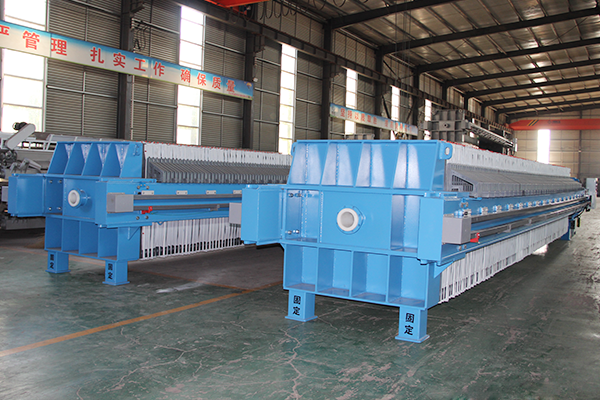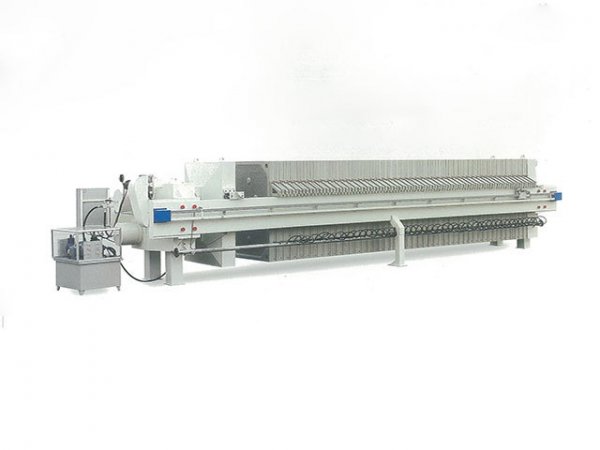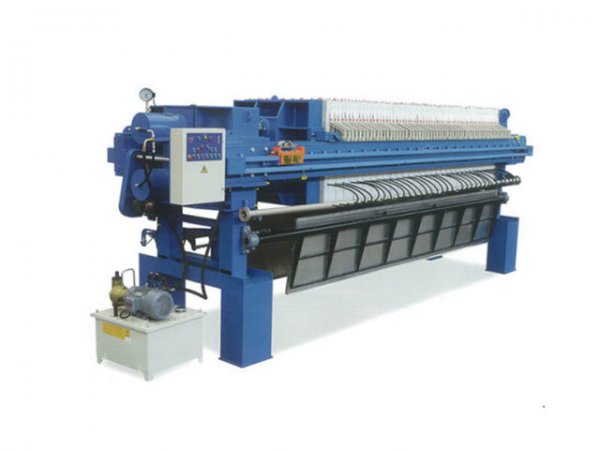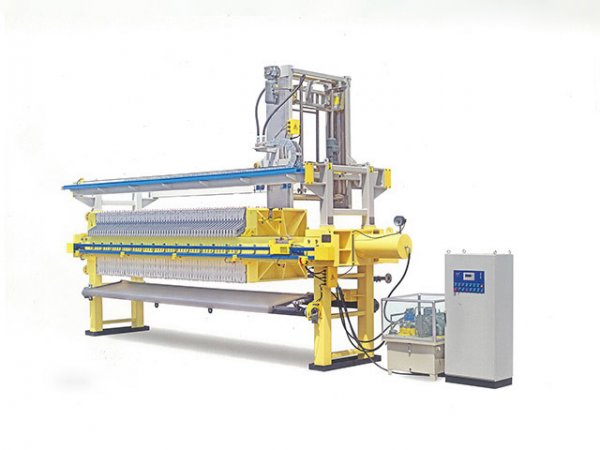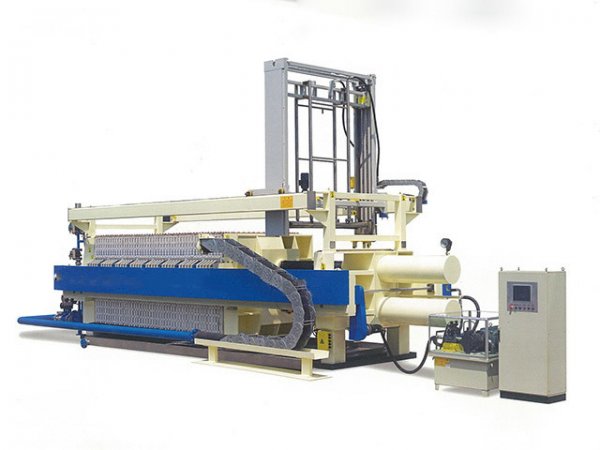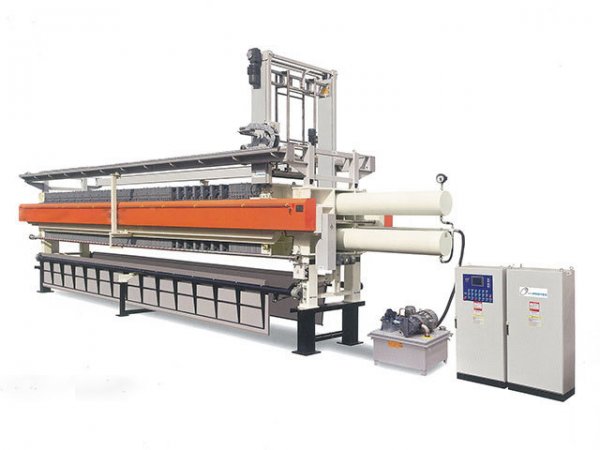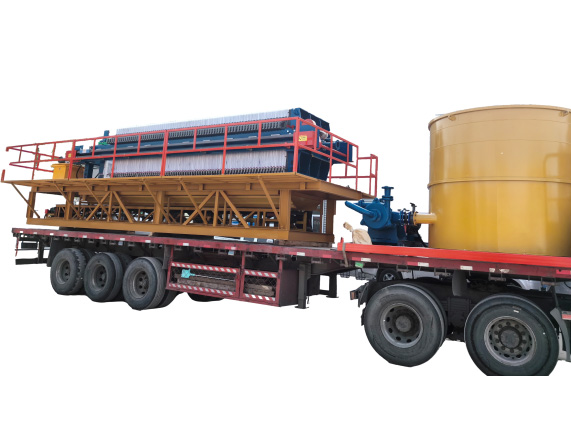NewsDetails
Using Hydraulic Filter Press in High-Temperature Environments
author:Shuangcheng time:2025-11-24 06:40:27 Click:169
Operating a hydraulic filter press in high-temperature environments presents unique challenges that demand thoughtful engineering and material selection. Excessive heat can affect filtration efficiency, shorten equipment lifespan, and compromise output consistency.
As an experienced manufacturer engaged in the production of filtration systems, we’ve learned that with the right preparation—proper materials, optimized parameters, and precise maintenance—a hydraulic filter press can perform effectively even in heat-intensive industrial applications.
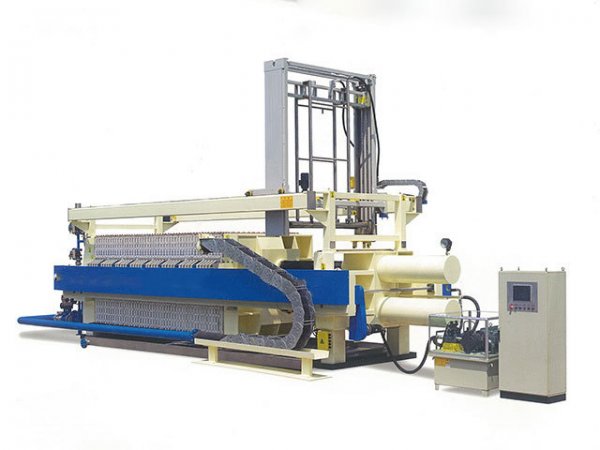
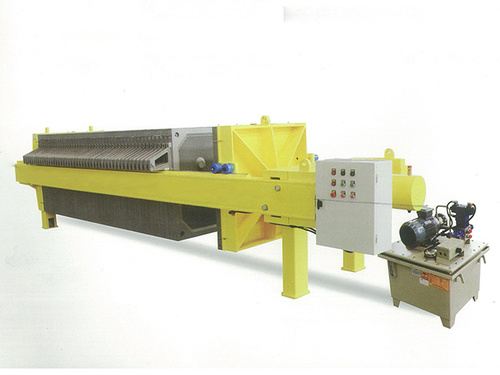
1. Impact of High Temperatures on Filtration
Temperature directly influences the viscosity and behavior of liquids and solids during the filtration process.
In a hydraulic filter press, when the operating temperature rises:
·Fluid viscosity decreases, allowing faster flow but sometimes causing fine particles to pass through the cloth.
·Synthetic materials may lose structural strength, leading to leakage or deformation.
·Hydraulic systems experience pressure fluctuations because hot oil thins, reducing sealing efficiency.
If not properly managed, these factors can lead to unbalanced cake formation and reduced throughput.
The solution lies in choosing high-temperature-compatible components and adjusting operational parameters for stability.
2. Selecting Suitable Materials for High-Temperature Conditions
To achieve consistent results under high heat, each element of the filter press must be tailored to withstand temperature stress.
a. Filter Cloth
The filter cloth is the heart of the process. For hot slurry filtration, polyester (PET) or aramid fiber (Nomex) performs best—they resist thermal degradation up to 150–200 °C. In contrast, polypropylene (PP) is suitable only for moderate temperatures (below 90 °C).
These fabrics maintain filtration precision and mechanical integrity, ensuring longer cloth life and better cake release.
b. Filter Plates
Standard polypropylene plates can deform under constant heat. For continuous high-temperature operation, stainless steel, glass fiber-reinforced composites, or cast iron plates offer better dimensional stability and chemical resistance.
c. Seals and Hydraulic Components
The seals in a hydraulic filter press are particularly vulnerable to heat. Replace standard nitrile (NBR) seals with fluorocarbon (Viton®) or PTFE-based alternatives, which can handle temperatures up to 200 °C without losing elasticity.
Hydraulic oil should also have high oxidation resistance to prevent breakdown during prolonged cycles.
3. Operational Adjustments for Heat-Intensive Environments
Even with heat-resistant materials, the way you run the press determines its success in extreme conditions.
·Gradual heating: Introduce hot slurry slowly to prevent thermal shock to plates and frames.
·Pressure regulation: Monitor hydraulic pressure, as thinner oil may cause instability.
·Optimized cycle time: Shorter cycles reduce thermal fatigue on filter components.
·Frequent inspection: Check filter cloth and seals after every cycle to detect early signs of wear.
·Use high-temperature lubricants: Special greases maintain lubrication without breaking down under heat.
Small operational changes can extend service life and sustain performance consistency.
4. Maintenance Practices for Long-Term Reliability
Routine maintenance is crucial when running a hydraulic filter press under high temperatures. Over time, heat accelerates wear, oxidation, and hardening of materials.
Here are several maintenance strategies:
·Hydraulic oil management: Replace oil regularly to prevent thinning and carbon deposits.
·Cooling systems: Use auxiliary coolers for the hydraulic unit to prevent overheating.
·Plate cleaning: Residual slurry may harden under heat; clean using soft brushes or low-pressure steam.
·Seal replacement: Replace aged or cracked seals before leakage occurs.
·Cloth regeneration: Hot-water washing helps restore permeability and removes embedded particles.
Scheduled inspection keeps the press in stable working condition and minimizes unplanned downtime.
5. The Manufacturer’s Role in High-Temperature Solutions
A reliable manufacturer plays a key role in engineering filter presses for thermal resilience.
Manufacturers with advanced production facilities use reinforced frames, heat-treated plates, and precision-machined components to ensure structural integrity under load and temperature stress.
Customized options, such as insulated frames, high-temperature hydraulic systems, and special filter cloth treatments, are designed to match diverse industrial requirements—from chemical processing and mining to food dehydration.
Choosing a professional manufacturer means gaining both technical expertise and tailored design support for your operational environment.
6. Benefits of Using Hydraulic Filter Press at High Temperatures
When equipped and operated properly, the hydraulic filter press offers significant advantages even under demanding heat:
·Faster filtration due to reduced slurry viscosity.
·Enhanced drying of filter cakes.
·Lower energy use in downstream drying operations.
·Extended operational cycles with less downtime.
These benefits translate directly into higher production efficiency and better cost control for manufacturers operating in thermally challenging industries.
7. Safety Considerations
High-temperature filtration must always balance productivity with safety.
Operators should wear protective gear, use heat shields where necessary, and regularly inspect hoses and fittings. Temperature sensors and automatic pressure regulators are recommended to avoid thermal overload or fluid leakage.
By incorporating safety into design and operation, you not only protect workers but also maintain consistent process integrity.
Conclusion
Working with a hydraulic filter press in high-temperature environments demands a careful blend of material expertise, process control, and maintenance discipline. Selecting heat-resistant components and following correct operating procedures ensures that your filtration system continues to deliver precise and efficient results.
As a professional manufacturer with extensive production experience, we design and supply filtration systems that perform reliably in the toughest industrial settings. The right engineering approach transforms a standard press into a powerful, heat-resilient tool for long-term industrial success.
References
GB/T 7714:Rashmi H R, Devatha C P. Review on solid-liquid separation using various conditioning methods[C]//IOP Conference Series: Materials Science and Engineering. IOP Publishing, 2021, 1166(1): 012002.
MLA:Rashmi, H. R., and C. P. Devatha. "Review on solid-liquid separation using various conditioning methods." IOP Conference Series: Materials Science and Engineering. Vol. 1166. No. 1. IOP Publishing, 2021.
APA:Rashmi, H. R., & Devatha, C. P. (2021, July). Review on solid-liquid separation using various conditioning methods. In IOP Conference Series: Materials Science and Engineering (Vol. 1166, No. 1, p. 012002). IOP Publishing.
 Recommended Products
Recommended Products
 Contact us
Contact us
—— Contact:Manager
—— Tel:+86 16632826789
—— Email:sales@hbscfilterpress.com
—— Url:https://www.hbscfilterpress.com
—— Address:West Zone of Economic Development Zone, Fucheng County, Hengshui City, Hebei Province

